
- Our studies
- Our research
- Publications and resources
- Data access and training
- About
- News
- Events
- Get in touch
- Join our mailing list

Welcome to our news and blogs section. Here you’ll find the latest developments and insights from across our longitudinal studies.

Celebrating 50 years of the 1970 British Cohort Study – The 1970 British Cohort Study highlighted how periods of being out of education, employment or training after leaving school can impact on young people’s lives
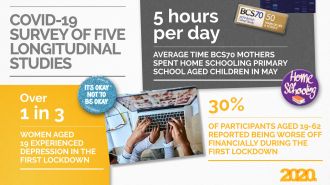
As the pandemic has unfolded we have surveyed participants of five national longitudinal studies, including the 1970 British Cohort Study (BCS70) to track the effects of COVID-19 over time. Here’s a summary of our researchers’ initial findings.
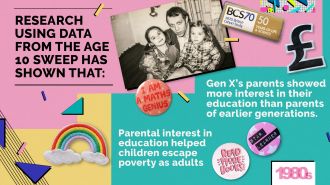
Data from the 1970 British Cohort Study has revealed that parents’ interest in children’s education has long lasting benefits.
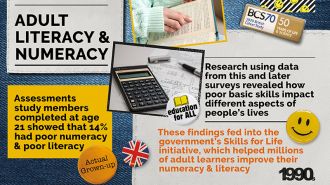
Celebrating 50 years of the 1970 British Cohort Study – BCS70 findings on adult numeracy and literacy helped to kickstart a series of government education initiatives that would improve the basic skills of millions of British adults during the 2000s.
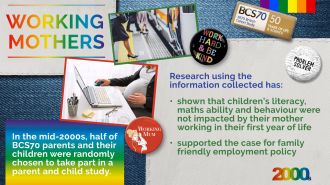
The 1970 British Cohort Study (BCS70) has been an important resource for research into the potential impacts on children when mothers return to work.
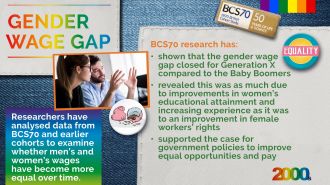
Britain’s birth cohort studies have been some of the leading sources of evidence on women’s education, employment and pay, helping us to monitor and understand the possible factors behind the gender wage gap.
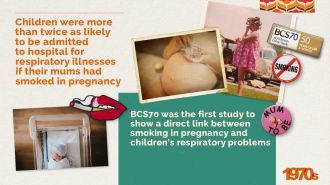
Celebrating 50 years of the 1970 British Cohort Study – Thanks to findings from the 1970 British Cohort Study (BCS70) birth survey we have increased our understanding of the risks posed by smoking in pregnancy, helping to improve health advice provided to mothers ever since.
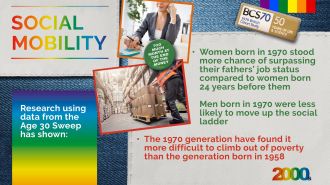
Celebrating 50 years of the 1970 British Cohort Study – BCS70 has been one of the leading sources of evidence on social mobility, informing a series of impassioned academic debates on this topic.
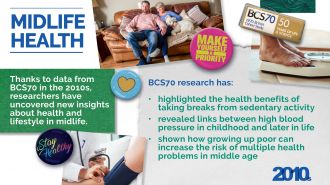
Findings from the 1970 British Cohort Study’s Age 46 Biomedical Sweep have helped to improve our understanding of midlife health.
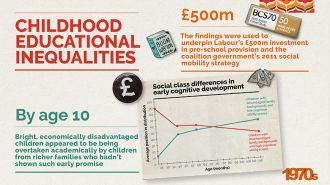
Celebrating 50 years of the 1970 British Cohort Study – Few pieces of longitudinal research have had such an impact on government policy as Leon Feinstein’s analysis of BCS70, which examined the links between family background and children’s cognitive development.
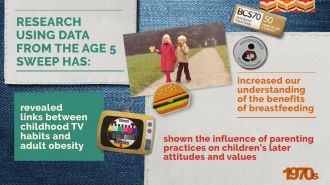
Celebrating 50 years of the 1970 British Cohort Study – Thanks to findings from the Age 5 Sweep we have increased our understanding of the benefits of breastfeeding, the links between TV viewing and adult obesity, and the influence of parenting practices on children’s later attitudes.
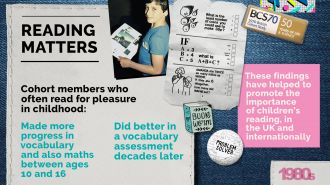
Celebrating 50 years of the 1970 British Cohort Study – Cohort members who had often read for pleasure made more progress in English, but also in maths, between the ages of 10 and 16, compared to those who had rarely read.
Ryan Bradshaw
Senior Communications Officer
Phone: 020 7612 6516
Email: r.bradshaw@ucl.ac.uk